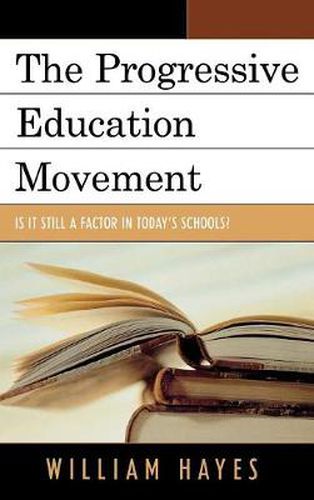Readings Newsletter
Become a Readings Member to make your shopping experience even easier.
Sign in or sign up for free!
You’re not far away from qualifying for FREE standard shipping within Australia
You’ve qualified for FREE standard shipping within Australia
The cart is loading…






For more than one hundred years, the United States has been the scene of academic warfare between traditional and progressive educators. During most of our nation’s history, many Americans have assumed that the primary purpose of school is to pass on to children the information and skills necessary to survive in our society. This traditional view accepts the fact that a teacher’s task is to inform children as to what they should know. Officials at the state and local level determine the content of students’ education, and it is the teacher’s job to ensure that the content is taught. Even before the beginning of the twentieth century, John Dewey and others introduced a different model. They believed that students learn best by doing not by being passive listeners. For progressive educators, the teacher’s role was to be a facilitator of learning in classrooms where students’ interest helped to provide appropriate developmental learning experience. This new approach to education has greatly affected our schools during the past century.
More recently, we have seen the emergence in American education of four initiatives that have threatened the continued influence of progressive education. They include the back to basics movement, mandated state curriculum standards, high-stakes testing, and school accountability. Despite these trends, there appears to be several factors that might lead one to conclude that progressive education is remaining a viable approach in the United States. This book considers these factors as well as past, present, and possible future of the progressive education movement.
$9.00 standard shipping within Australia
FREE standard shipping within Australia for orders over $100.00
Express & International shipping calculated at checkout
For more than one hundred years, the United States has been the scene of academic warfare between traditional and progressive educators. During most of our nation’s history, many Americans have assumed that the primary purpose of school is to pass on to children the information and skills necessary to survive in our society. This traditional view accepts the fact that a teacher’s task is to inform children as to what they should know. Officials at the state and local level determine the content of students’ education, and it is the teacher’s job to ensure that the content is taught. Even before the beginning of the twentieth century, John Dewey and others introduced a different model. They believed that students learn best by doing not by being passive listeners. For progressive educators, the teacher’s role was to be a facilitator of learning in classrooms where students’ interest helped to provide appropriate developmental learning experience. This new approach to education has greatly affected our schools during the past century.
More recently, we have seen the emergence in American education of four initiatives that have threatened the continued influence of progressive education. They include the back to basics movement, mandated state curriculum standards, high-stakes testing, and school accountability. Despite these trends, there appears to be several factors that might lead one to conclude that progressive education is remaining a viable approach in the United States. This book considers these factors as well as past, present, and possible future of the progressive education movement.